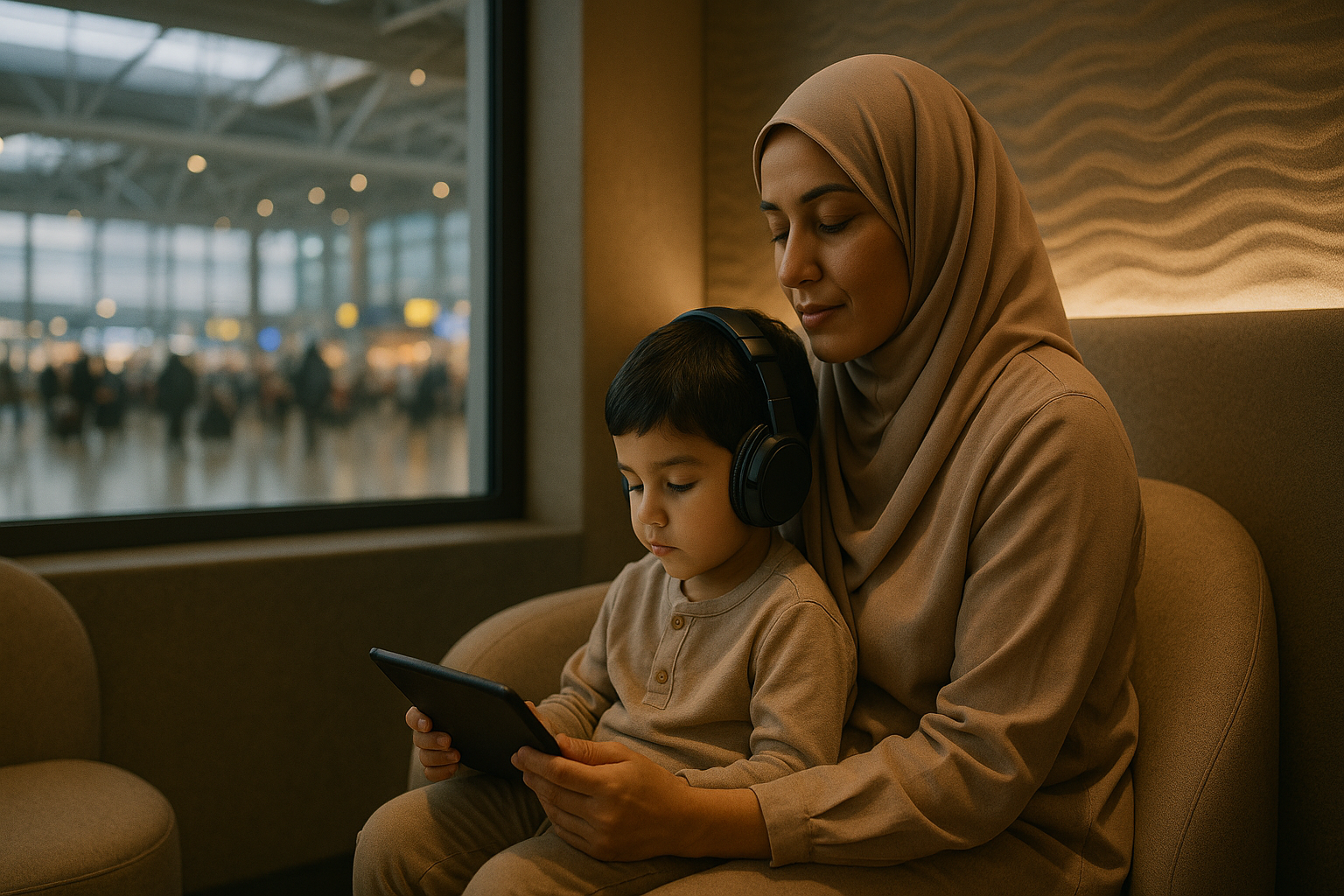
A quiet but profound revolution is reshaping global travel. The Global Muslim Travel Index 2025 reveals how a focus on inclusivity is moving from the margins to the mainstream, creating a more dignified and accessible world for neurodivergent individuals and active seniors.
The thrill of travel, the anticipation of new places, and the promise of discovery are a universal desire. Yet, for millions, this journey is paved with hidden obstacles. Now, as the Global Muslim Travel Index (GMTI) marks its tenth anniversary, its 2025 report, published by Mastercard and CrescentRating, signals a shift in the industry's consciousness. The focus has sharpened, moving beyond simple metrics to champion a deeper, more humane cause: Accessible Travel.
This year's report expands its Accessible Travel Framework (ATF) to specifically address the needs of two significant groups: neurodivergent travelers and the rapidly growing demographic of active seniors. It argues that creating accessible experiences is not a concession, but a cornerstone of modern hospitality, aligning with the core tenets of Muslim-friendly tourism, which emphasizes dignity and ease for every traveler.
The findings suggest that the travel industry stands at a crossroads where empathy and economics converge.
The case for accessible travel is as compelling commercially as it is morally. The World Health Organization (WHO) estimates that over 1.3 billion people live with a significant disability, a demographic that often travels with companions, magnifying its economic impact. The GMTI report highlights a statistic: 60% of families are willing to pay a premium for travel experiences that are more accommodating to neurodiverse members.
Despite this apparent demand, a gap persists. Only 9% of tourism destinations worldwide have accessibility solutions in place, revealing a vast, underserved market. This is especially pertinent in the context of Muslim travel, where multi-generational family trips are the norm. The needs of an elderly family member on a holiday quickly become the entire family's priority, influencing everything from flight choices to hotel bookings.
An estimated 10-20% of the world's population is neurodivergent, a broad term that includes individuals with autism, ADHD, dyspraxia, and dyslexia. For them, the sensory overload of a bustling airport or the anxiety of an unfamiliar environment can be overwhelming.
The report provides a platform for addressing these challenges through real-world insights. It cites the experiences of advocates like Madam Fara, founder of MIJ Hub and a mother to a neurodivergent son. She describes airports as a primary source of stress due to long queues and unpredictable announcements. Her insights underscore how seemingly minor adjustments, such as customizable entertainment and sensory-friendly amenities like weighted blankets or designated quiet areas, can fundamentally transform a travel experience from an ordeal into a joy.
To address this, the GMTI's Accessible Travel Framework (ATF) offers a blueprint for change that goes beyond physical infrastructure. It champions:
Pioneering destinations are already embracing this philosophy. Malaysia is emerging as a leader within the Organisation of Islamic Cooperation (OIC), with Kuala Lumpur International Airport's (KLIA) "Butterfly Effect" program offering calm rooms and specially trained staff. Attractions like LEGOLAND Johor have earned the Certified Autism Center™ designation. Meanwhile, nations like the Netherlands demonstrate a systemic approach, with national anti-discrimination laws and the widespread adoption of accessibility tools in public transportation.
The stereotype of the senior traveler has been decisively retired. Today's travelers aged 60 and over are a dynamic and high-value market. Within the global Muslim population alone, this demographic is expected to reach 474 million by 2035.
Motivated by lifelong dreams, wellness, and quality time with family, these seasoned explorers prioritize comfort and safety. The GMTI report identifies their most pressing needs: elevator access, ample seating, clear signage, and responsive staff. While digitally savvy in many ways, a significant portion of this group faces a "digital gap," preferring the reassurance of a human agent or a printed ticket over a complex app.
The report recommends a multi-faceted approach to serving them better:
Major transport hubs, such as London's Heathrow and Singapore's Changi, are already setting benchmarks with specialized assistance programs and senior-friendly infrastructure.
To galvanize the industry, the GMTI 2025 introduces a vital new metric: the "Muslim-Friendly Accessible Travel Destination" sub-index. This sub-index assesses destinations on a combination of transport infrastructure, overall safety, and universal accessibility.
Leading the non-OIC rankings are advanced urban destinations such as Hong Kong, Singapore, and Switzerland, which are recognized for their modern infrastructure and strong accessibility laws. Among OIC nations, Qatar, Malaysia, Maldives, and Türkiye score highest. The report notes that while OIC destinations offer an inherently welcoming, faith-based environment, a significant opportunity exists to elevate their physical infrastructure and accessibility services to match those of global leaders.
Ultimately, the journey towards a truly inclusive travel landscape is underway. Driven by technology, empathy, and sound economics, this movement aims to remove barriers, both visible and invisible. It is a future where the promise of travel becomes a reality for all, ensuring that every journey can be undertaken with confidence, comfort, and, above all, dignity.
Download the full Mastercard-CrescentRating Global Muslim Travel Index here.